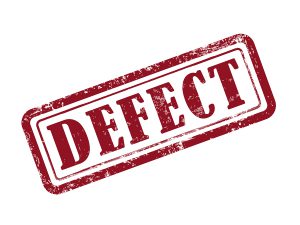What To Do When Products Fail
 Michael Babboni
Recalls
The majority of personal injury cases revolve around you or people you are with having received injuries due to negligence. While that is the most common cause of injury, it certainly isn't the only one. In fact, sometimes there is no one that can be directly to blame when an injury occurs. The reason is simple, it's not a person, but a product or tool that ends up failing you and resulting in injury.
Michael Babboni
Recalls
The majority of personal injury cases revolve around you or people you are with having received injuries due to negligence. While that is the most common cause of injury, it certainly isn't the only one. In fact, sometimes there is no one that can be directly to blame when an injury occurs. The reason is simple, it's not a person, but a product or tool that ends up failing you and resulting in injury.So who do you hold liable when a defective product causes injury?
Product Liability
Product liability refers to a seller or manufacturer being held liable for placing a defective product into the hands of a consumer. Responsibility for a defective product causes injury lies with all sellers of the product within the distribution chain. This may include the product manufacturer, a manufacturer of component parts, a party that assembles or installs product, the wholesaler, and the retail store that sold the product to the consumer.
Types Of Product Defects
Under the theory of liability, in a product liability case you must be able to prove that the product caused the injury due to a defect. In order to do so, you need to know what type of defect occurred and which party is responsible for it occurring. There are three main types of defects that might have caused the injury and give rise to manufacturer or supplier liability:
Design Defects – This is when the defect is present in the product from the very beginning, even before it has been manufactured. Something in the design of the product itself is inherently flawed and unsafe.
Manufacturing Defects – This happens when during the course of the product's manufacture or assembly a mistake or problem occurs that causes the product to work improperly.
Marketing Defects – This has to do with flaws in the way the product was marketed and advertised. This can include improper labeling, poor instructions, or inadequate safety warnings.
Unavoidably Dangerous Products
Some products are naturally unsafe and can not be made safer without losing their usefulness. For example, an electric knife that is too dull to cause injury is also useless for it's intended purpose. So if you end up getting cut by that electric knife, you can not hold the company liable because the product would be useless otherwise. However, if the injury caused by a product is unrelated to the product's main function then the sellers may still be liable for your injuries. For example, if that electric knife had chemical residue on it, you may have a case.
Common Defenses Against Product Liability Claims
Often in product liability cases, the company or seller will claim that the accuser did not blame the correct party. In order to prove product liability, you need to connect fault to the correct party. That is why it is so important to identify the type of product defect in order to understand which party is responsible for the failure.
Another common defense a manufacturer might suggest is that the accuser altered the product after it left the manufacturer's control and this alteration is the main cause of their injury. Or the manufacturer may state that the accuser misused the product to begin with.
